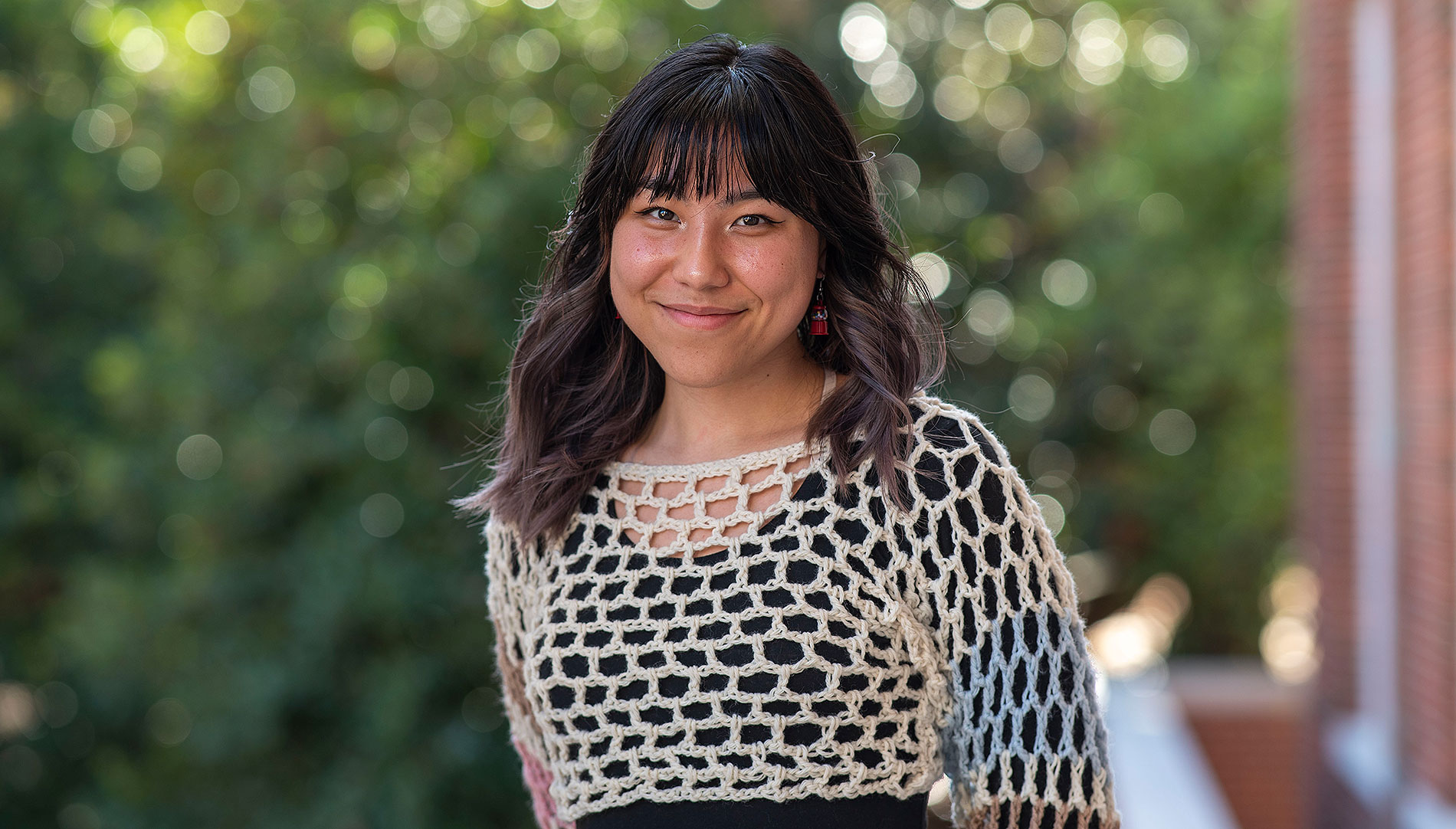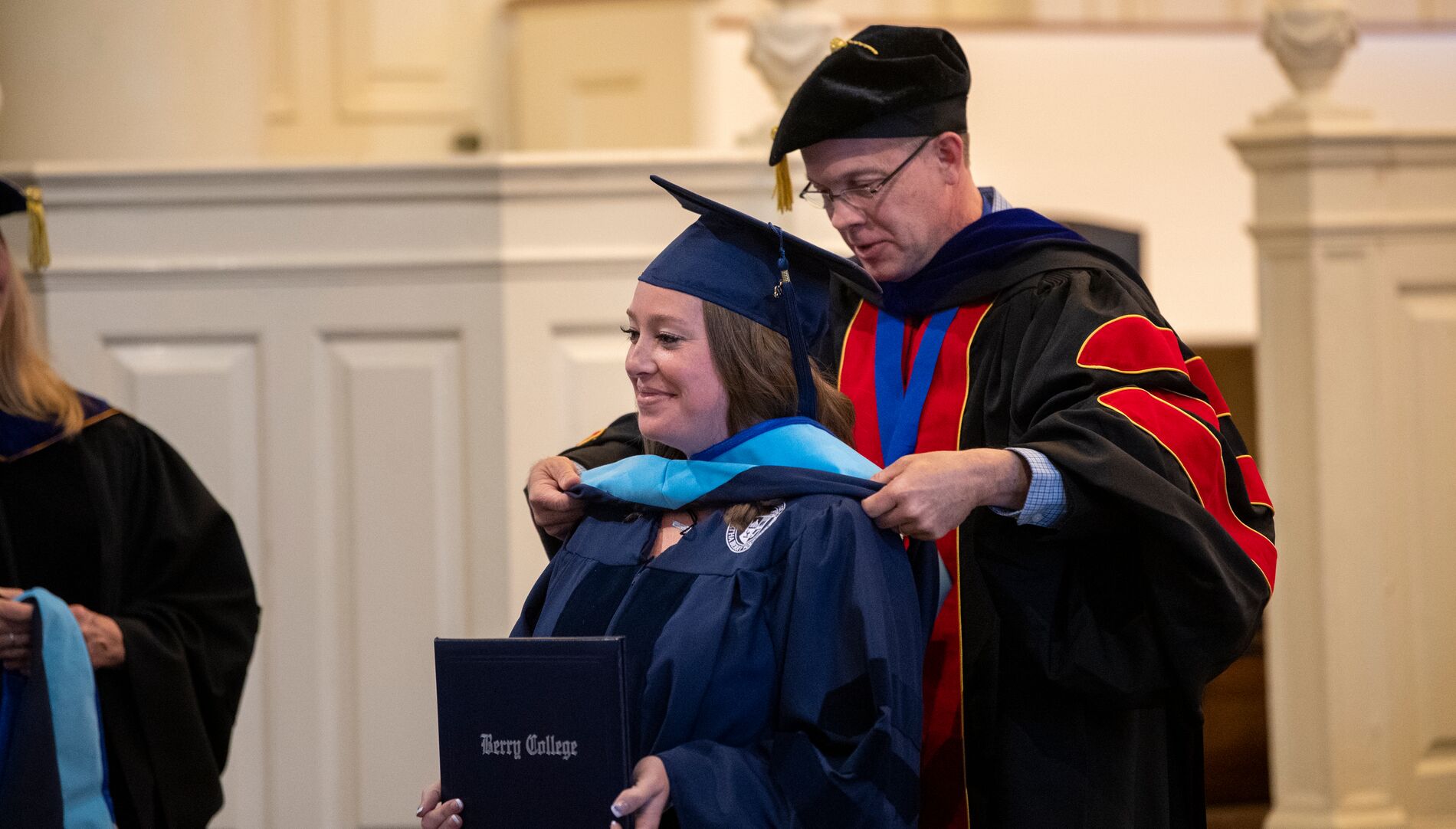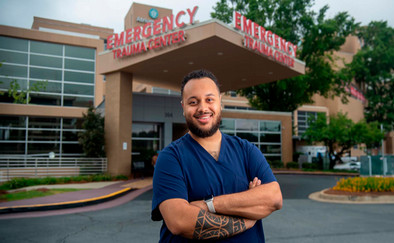ROME, Ga. – Spending an afternoon in Adult Day Health at Mercy Care, a clinic for aging adults in Rome, you might hear any number of stories and life wisdoms – as diverse as the people sharing them. Though the nostalgia of seniors is often heard and forgotten, Berry College students have made an effort to change that.
Twice a year since 2017, students from the “Psychology of Adulthood and Aging” class at Berry have gathered at Mercy Care to work on preserving those stories otherwise lost.
Assistant Professor of Psychology Casey Dexter teaches the class and first introduced this project two years ago.
"I needed to find a hook for students; a way to teach them empathy and a desire to better understand the aging process," Dexter said. "What developed was a bi-annual class project to record and share the life stories of those in Adult Day Health at Mercy Care. It underlines how storytelling and cross-generational interaction serve as a socio-cognitive therapy for those struggling with memory loss."
Students partner with Adult Day Health patients in small groups to interview them about their lives. They ask a gamut of questions covering childhood, adulthood's highs and lows, and finally collect some life wisdoms. Students search for significant themes and ways to organize these stories before finally weaving them into short memoirs for patients and families to keep. This past year, 40 students participated in the project, creating 18 individual life story books.
One Berry student, Callie Whitesell, wrote the biography of Dorothy Gray. Her story ranged from vivid memories of leaves changing in her childhood, to sweeping wisdoms of pursuing higher education and a career. Her book is packed with surprise experiences that pushed her out of her comfort zone and beyond her shyness to forge lifelong, international friendships.
"She told me to never give up," Whitesell reflected. "Dorothy's work was very important to her, and it took her a while succeed. Her mother's schooling had been influential on her, and she told me to keep persevering as a student myself."
Stories like Gray’s that recount efforts, struggles, and lifetime achievements characterize the diverse library Mercy Care now has. As a byproduct, the interview behind the books allows students to engage with their elders in a meaningful way.
"Ultimately, these projects benefit more than just the patient," said Dexter. Students say the project adds dimension to their study of psychology and healthcare and creates greater empathy for what the aging clients are going through.
"Getting to talk to someone about their experiences makes what we're learning whole," Whitesell explained. "And on the flip side, it's great for the people we interview to go through their life again, build satisfaction from reflection, and walk away with their life story book."
These books become even more valuable toward the end of life. Dexter reported that with the passing of one patient, they received requests for several more copies to be distributed in their memory.
"They become a precious family heirloom," he said. Undoubtedly, the stories and wisdoms immortalized through these books will be cherished by patients, families, and the students that made them possible for years to come.
About Mercy Care: Mercy Care has been providing quality of life and peace of mind by meeting the needs of families since 1990. Whether it is help getting an elderly family member to a medical appointment, teaching seniors job-search skills, providing caregiver support groups, or referrals to community resources on raising grandchildren.
Public Relations


